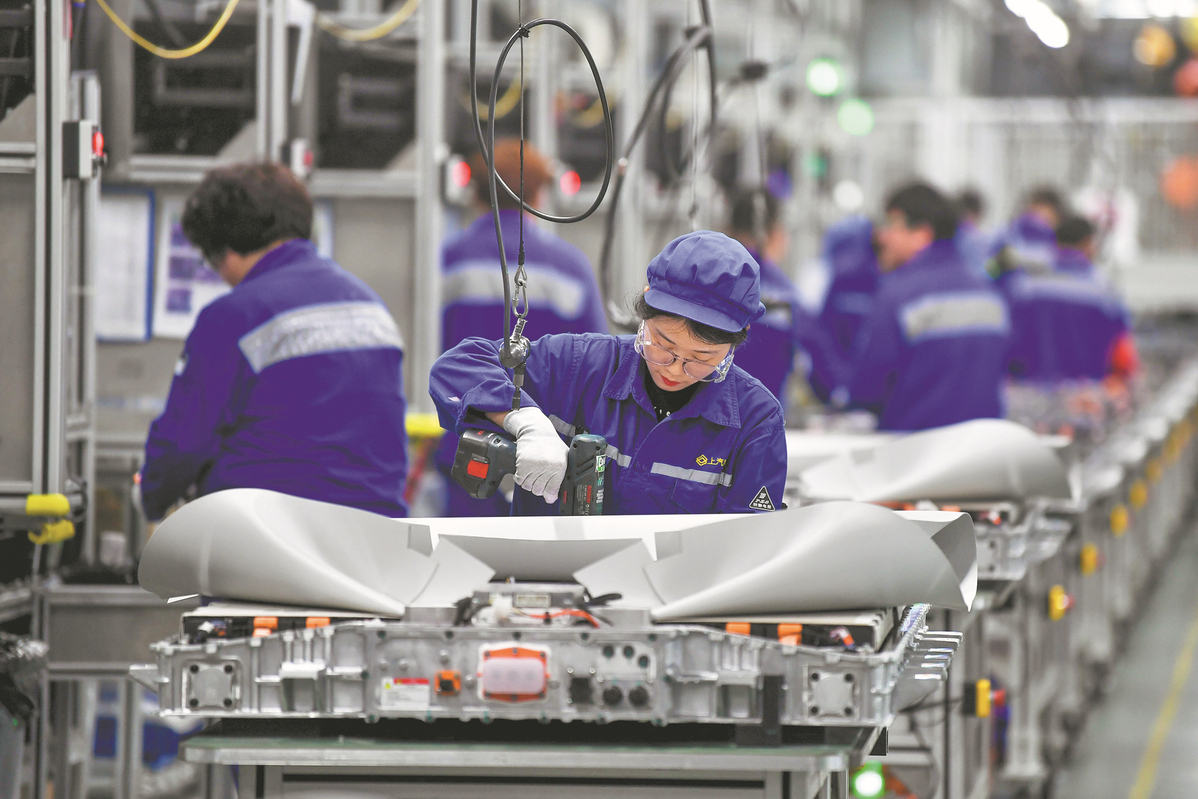Nation's battery sector powers ahead both at home and overseas

China's electric car battery industry is growing rapidly, driven by a sustained surge in the new energy vehicle market, according to the latest data from the China Automotive Battery Innovation Alliance.
Power battery production in China increased by 36.8 percent year-on-year to 293.6 gigawatt-hours in the first half of this year. Meanwhile, the installed capacity of power batteries for NEVs has grown by 38.1 percent year-on-year, reaching 152.1 GWh.
In terms of brands, CATL remains the leading player in the market with an installed capacity of 66.03 GWh in the first half, representing a year-on-year growth of 25.77 percent.
However, CATL's market share declined to 43.4 percent, a drop of 4.27 percentage points compared to the same period of 2022. This loss of market share can be attributed to the rapid growth of BYD, which holds second position after CATL.
In the first half, BYD's installed capacity reached 45.41 GWh, soaring 90.96 percent year-on-year. Also, as an NEV maker, BYD sold 1.26 million units, capturing nearly 30 percent of the market share. This has played a significant role in boosting its power battery market share from 21.59 percent in the first half of 2022 to 29.85 percent this year.
Industry insiders have pointed out that the gap in market share between CATL and BYD is narrowing. Besides the strong presence of BYD, one of the reasons is that some of CATL's customers are opting for batteries from second-tier providers due to cost.
As the NEV market continues to develop, automakers are now prioritizing cost performance rather than concentrating on maximizing battery range, they said.
Second-tier battery providers saw installed capacity growth in the first half. For example, CALB was up 50.42 percent year-on-year and EVE Energy soared 169.8 percent year-on-year.
In the global market, six Chinese battery companies ranked among the top 10 for battery installations during the first five months, according to the South Korean institution SNE Research. The combined market share of these six increased from 56.1 percent in the first half of 2022 to 62.7 percent this year.
This increase in market share was not only dependent on the domestic market but their growth and competitiveness in overseas markets.
In the first half of this year, Chinese battery companies exported a combined total of 56.7 GWh of batteries, accounting for 19.3 percent of the total production. Comparatively, their total exports of batteries for the whole of 2022 amounted to 68.1 GWh.
Chinese battery companies are also expanding their presence by establishing manufacturing facilities abroad. For instance, in early July, Svolt Energy started the construction of a battery module and pack factory in Thailand.
The factory is expected to produce 60,000 packs of EV batteries annually. Similarly, CATL has established manufacturing plants in Germany and Hungary for localized production and supply capabilities, with a total planned capacity of 114 GWh. Meanwhile, EVE Energy is setting up production facilities in Malaysia and Hungary.
Data from the China Automotive Battery Innovation Alliance showed that power battery production was almost two times the installed capacity in the first half of this year.
Industry experts said that venturing into international markets has become a viable strategy for Chinese battery providers to make use of their excess production capacity.
Invest in China Copyright © 2026 China Daily All rights Reserved
京ICP备13028878号-6
 京公网安备 11010502032503号
京公网安备 11010502032503号





